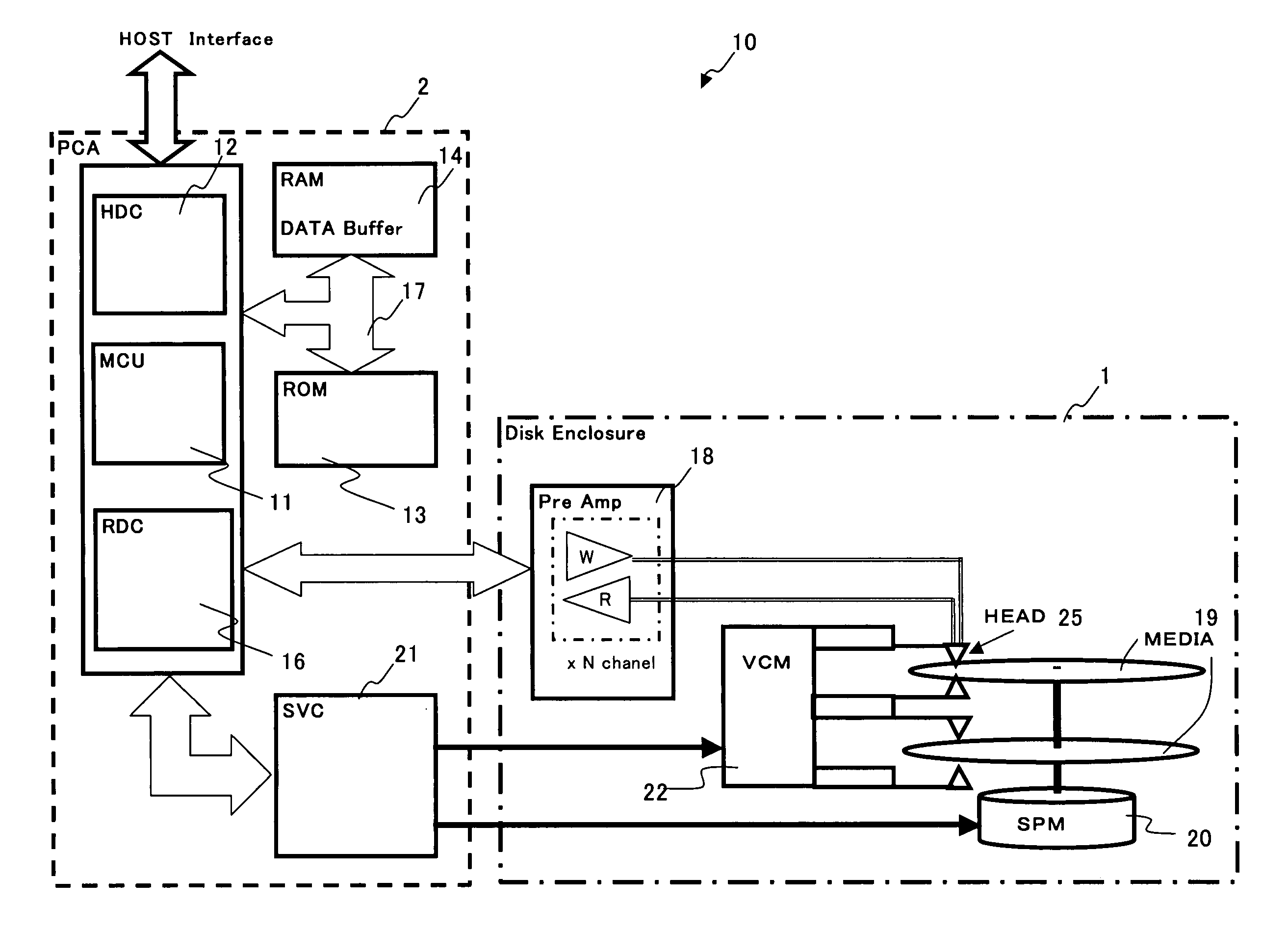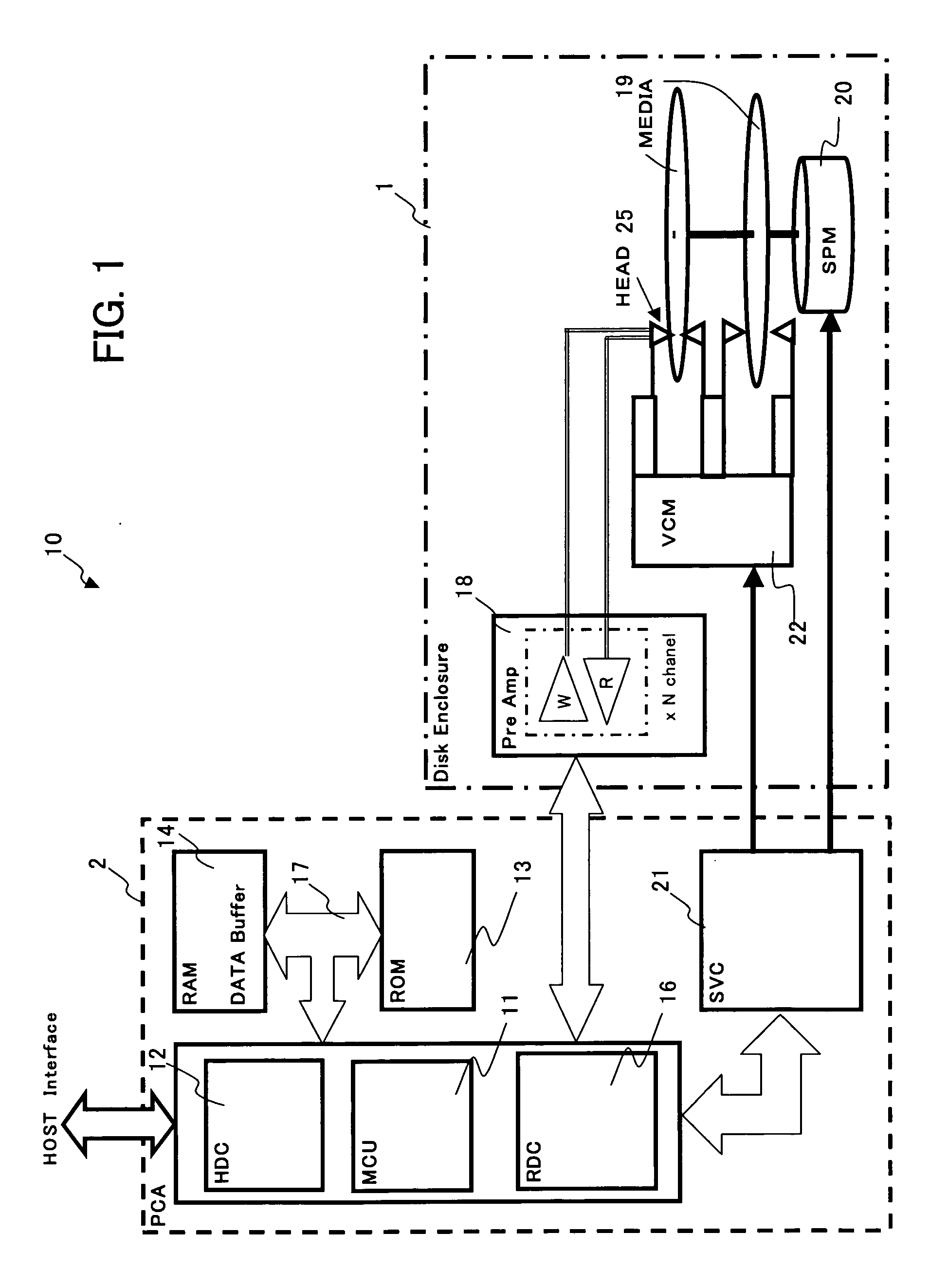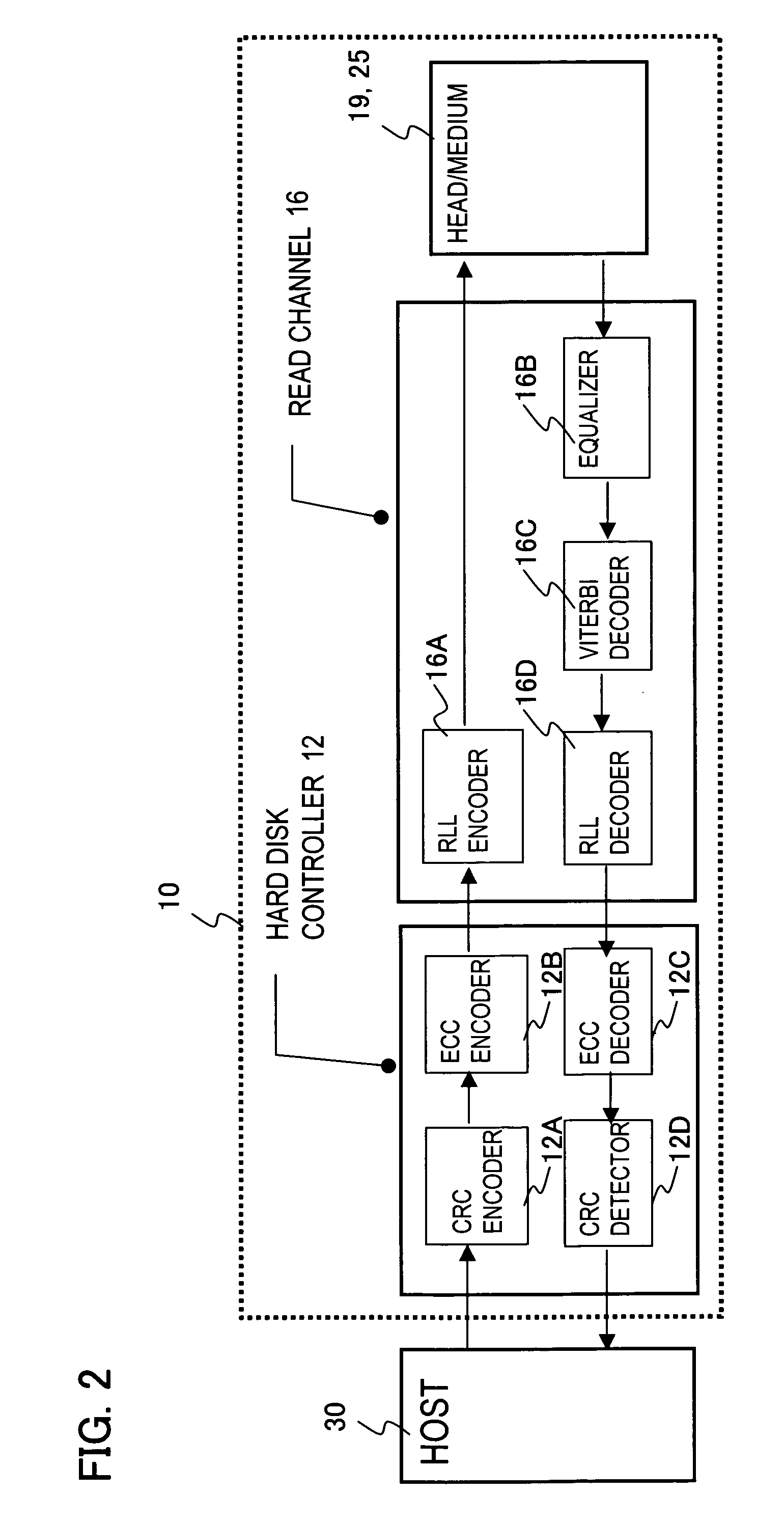Data loss prevention method of a media storage device and media storage device
a technology of media storage device and data loss prevention, which is applied in the field of data loss prevention method of media storage device and media storage device, can solve the problems of s/n ratio, worsening of error rate, and problems relating to reliability, and achieve the effect of accurate detection, accurate detection and accurate detection
- Summary
- Abstract
- Description
- Claims
- Application Information
AI Technical Summary
Benefits of technology
Problems solved by technology
Method used
Image
Examples
Embodiment Construction
[0059] Below, embodiments of the invention are explained in the order of a media storage device, thermal relaxation map, thermal relaxation map creation processing, thermal relaxation map update processing, and other embodiments.
[0060] Media Storage Device
[0061]FIG. 1 shows the configuration of the media storage device of one embodiment of the invention; FIG. 2 shows the configuration of the recording / reproduction circuitry in FIG. 1. FIG. 1 shows an example in which a hard disk drive which reads and writes data from and onto a magnetic disk is used as the media storage device.
[0062] As shown in FIG. 1, the magnetic disk device 10 is either incorporated within or connected to a personal computer (described later in FIG. 2), and is connected to the personal computer host (not shown in FIG. 1) via an ATA (AT Attachment) standard or other interface cable (not shown).
[0063] The magnetic disk device 10 has, within a disk enclosure 1, a plurality (here, two) of magnetic disks 19, a sp...
PUM
| Property | Measurement | Unit |
|---|---|---|
| recording time | aaaaa | aaaaa |
| time | aaaaa | aaaaa |
| operating time | aaaaa | aaaaa |
Abstract
Description
Claims
Application Information
 Login to View More
Login to View More - R&D
- Intellectual Property
- Life Sciences
- Materials
- Tech Scout
- Unparalleled Data Quality
- Higher Quality Content
- 60% Fewer Hallucinations
Browse by: Latest US Patents, China's latest patents, Technical Efficacy Thesaurus, Application Domain, Technology Topic, Popular Technical Reports.
© 2025 PatSnap. All rights reserved.Legal|Privacy policy|Modern Slavery Act Transparency Statement|Sitemap|About US| Contact US: help@patsnap.com



